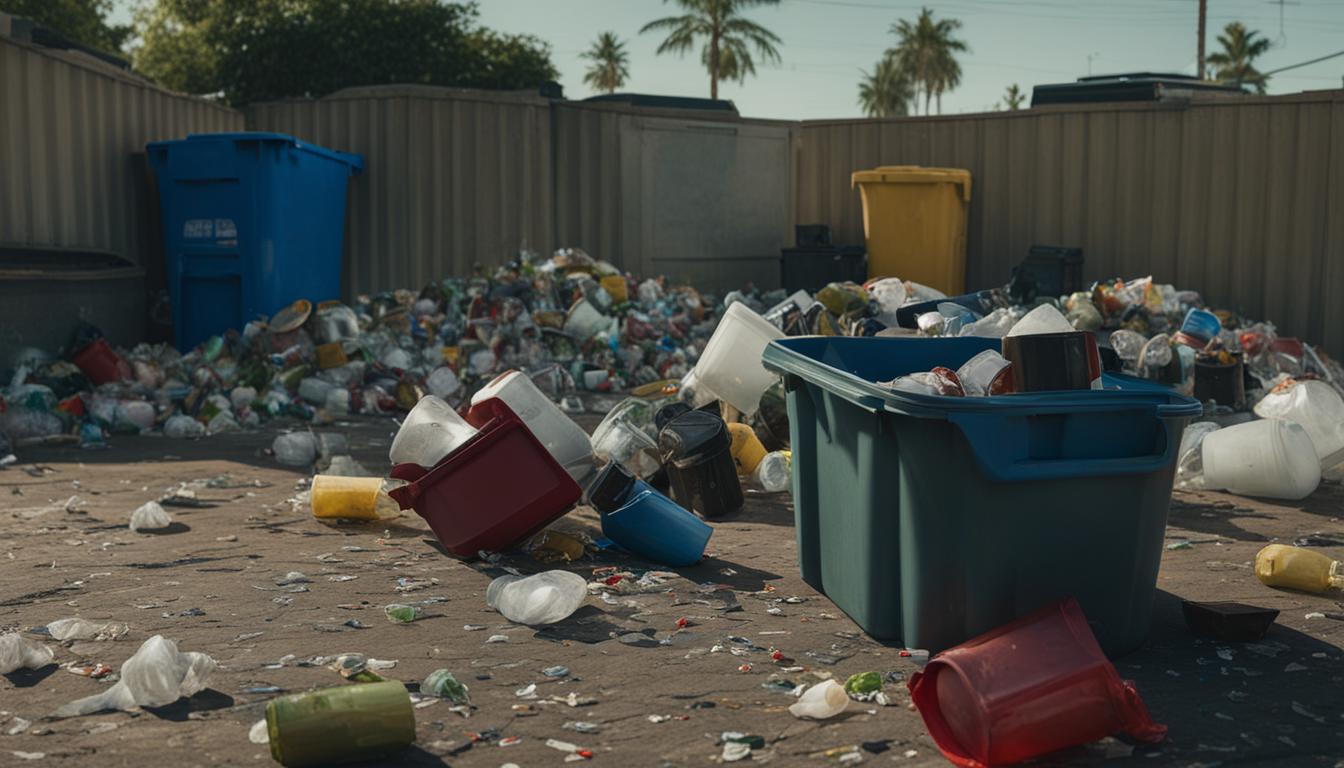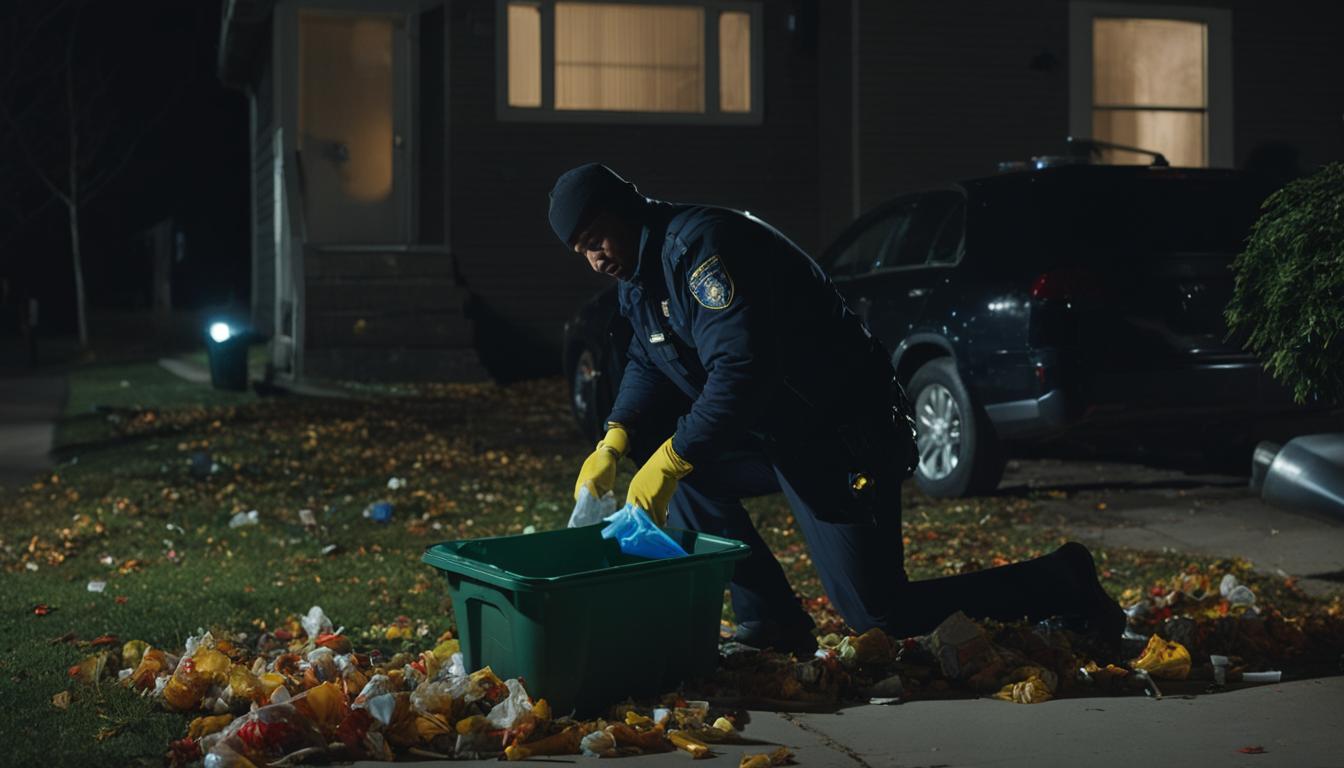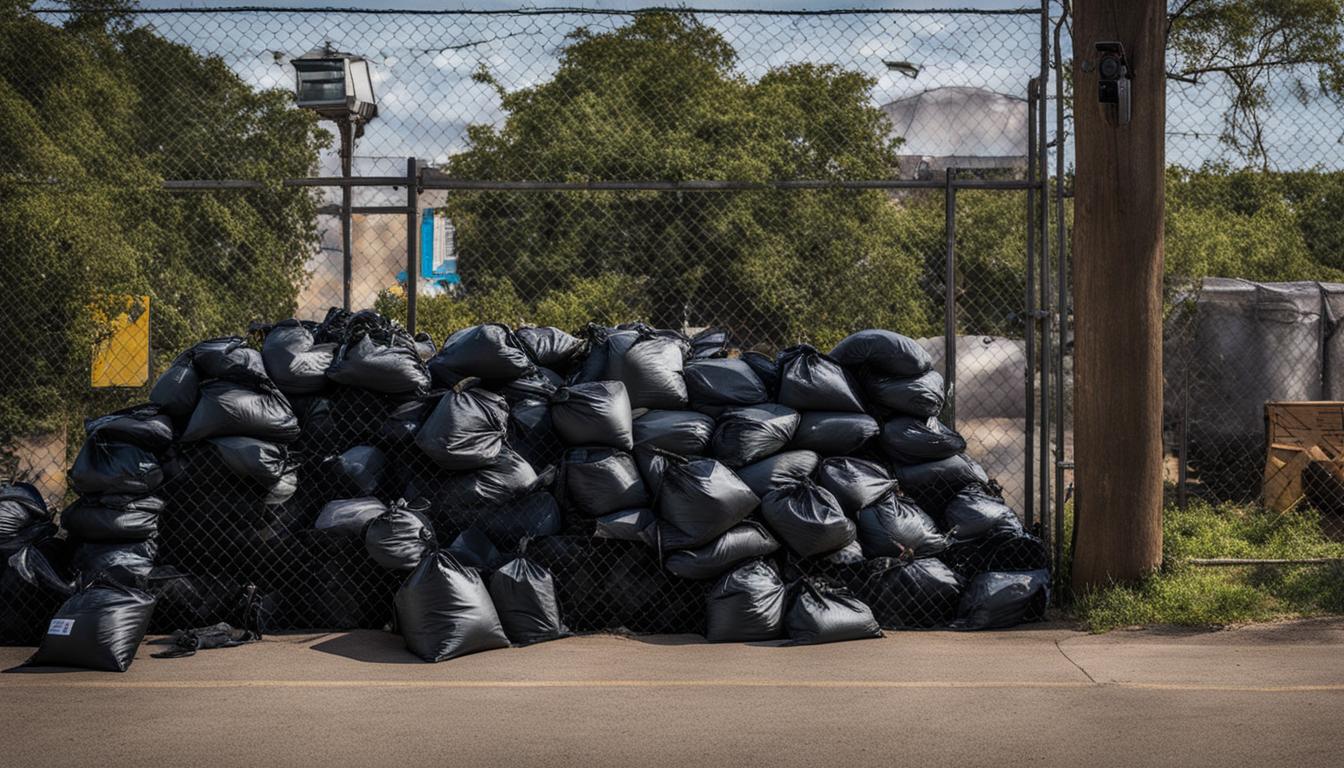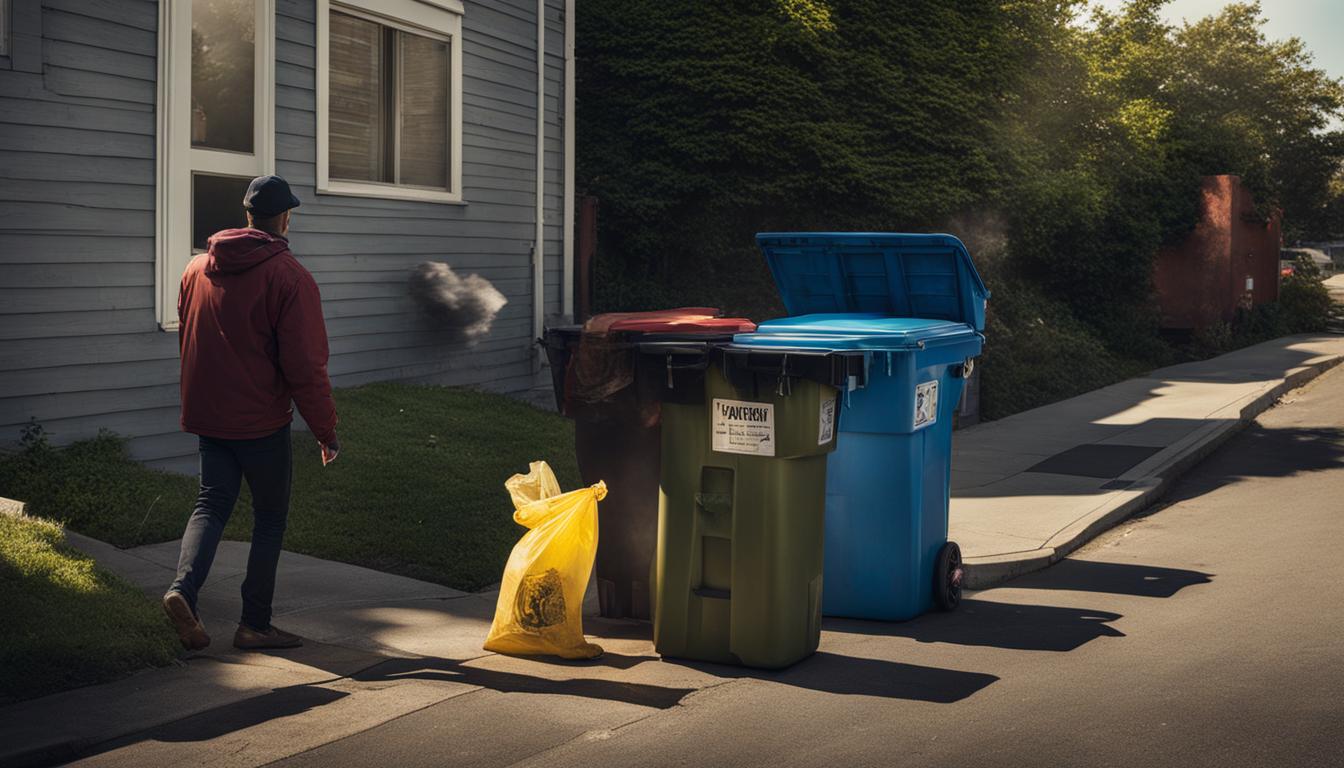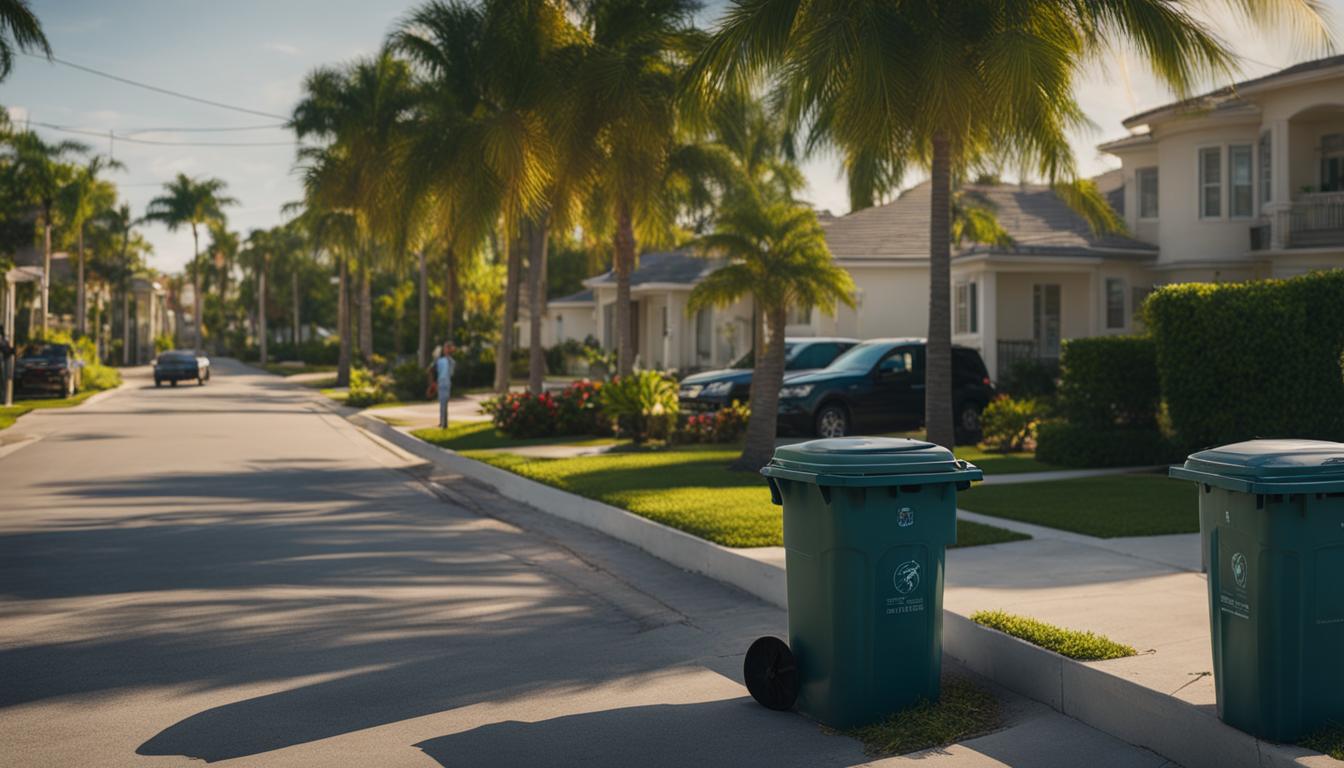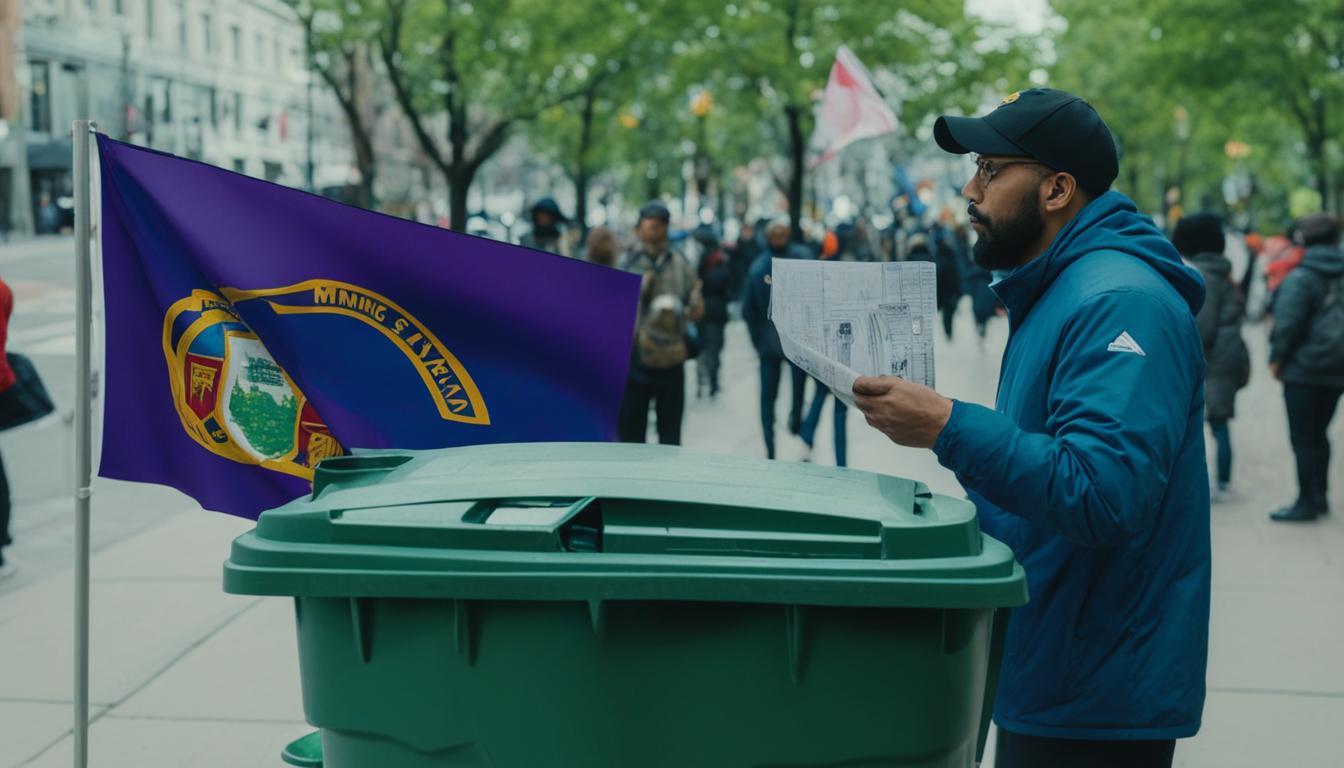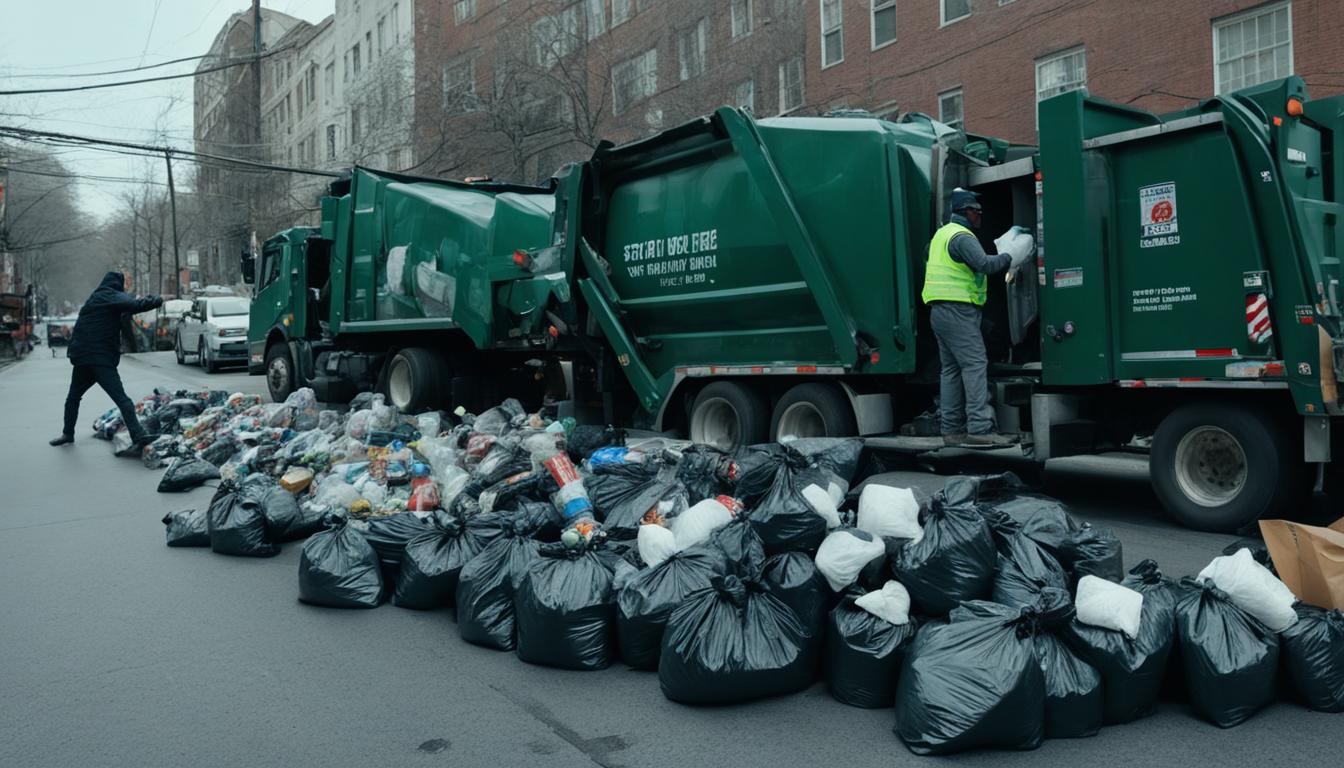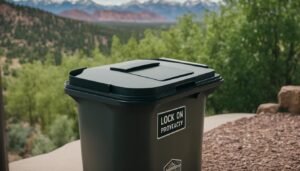Disclosure: This Post Contains Affiliate Links; We earn a commission on purchases.
When it comes to privacy rights and the legality of trash searches, understanding the laws in Wisconsin is essential. Many people wonder if it is illegal for someone to go through their trash and what their rights are in such situations.
In Wisconsin, the answer may surprise you. It is not illegal for someone to go through your trash. Once you place your trash by the curb for collection, it is considered abandoned, and you no longer have a reasonable expectation of privacy in its contents. This means that the police can search your trash without a warrant and use any evidence they find against you in a criminal prosecution.
Why is this the case? The Fourth Amendment of the United States Constitution, which protects against unreasonable searches and seizures, does not apply to trash left in public view. Therefore, your trash on the curb is fair game for anyone to go through, including law enforcement.
Key Takeaways:
- In Wisconsin, it is not illegal for someone to go through your trash left by the curb for collection.
- Once you abandon your trash, you no longer have a reasonable expectation of privacy in its contents.
- The police can search your trash without a warrant and use any evidence they find against you in a criminal prosecution.
- The Fourth Amendment does not protect trash left in public view.
- Understanding your privacy rights surrounding trash disposal is important to protect your legal interests.
Trash Left by the Curb is Considered Abandoned
When you place your trash by the curb for collection, it becomes abandoned property. This means that it is no longer protected by the Fourth Amendment, which guarantees the right to be free from unreasonable searches and seizures. As a result, the police have the authority to search your trash without a warrant and use any evidence they find against you.
The courts have consistently ruled that by placing your trash on or near the street, you have willingly exposed it to the public. This act eliminates any reasonable expectation of privacy you may have had. Trash left for collection is easily accessible to animals, children, scavengers, and other members of the public. It is a common understanding that once you have placed your trash on the curb, it is available for inspection by anyone.
“By placing your trash on the curb, you have effectively surrendered any claim to privacy in its contents.”
While it may seem inconvenient that the police can search your trash without a warrant, it is important to remember that trash left on the curb is considered abandoned property. This distinction is crucial for understanding the legality of such searches. By openly discarding your trash outside your home, you have relinquished any expectation of privacy associated with its contents.
The image above visually represents the concept of a reasonable expectation of privacy, highlighting the distinction between trash left by the curb and other areas that are still protected by privacy laws.
Trash Bin Inside Your Home is Protected
When it comes to the trash bin inside your home, you can rest assured that it is protected by the Fourth Amendment and your right to privacy. Unlike the trash left on the curb, which is considered abandoned, the contents of your home’s trash bin remain off-limits to law enforcement without a warrant or probable cause.
The Fourth Amendment of the United States Constitution safeguards your right to privacy within the boundaries of your home, extending that protection to your trash as well. This means that the police cannot search your trash bin inside your home without meeting the necessary legal requirements. Without a valid warrant or probable cause, any evidence obtained from your home’s trash bin would be deemed an illegal search and seizure, rendering it inadmissible in a criminal case.
It is essential to recognize and appreciate the importance of privacy rights within your own home. By safeguarding the privacy of your trash, you are preserving your broader right to personal security and autonomy. The Fourth Amendment serves as a fundamental protection against unwarranted intrusion, ensuring that law enforcement cannot disregard your privacy under the guise of an illegal search and seizure.
“The sanctity of one’s home is an inviolable principle, encompassing not only the physical dwelling but also the personal effects contained within. This extends to the trash bin inside, for it is an integral part of an individual’s private domain.”
By upholding the integrity of privacy rights, the legal system seeks to strike a delicate balance between law enforcement’s investigatory powers and an individual’s expectation of privacy. This ensures that citizens can enjoy the full protection and security provided by the Fourth Amendment, even within the confines of their own homes. It is crucial to recognize and exercise these rights, reinforcing the notion that your home is your castle, safeguarded from intrusive searches and seizures.
| Trash Bin Inside Your Home vs. Trash on the Curb | Trash Bin Inside Your Home | Trash on the Curb |
|---|---|---|
| Fourth Amendment Protection | Protected by the Fourth Amendment | Not protected by the Fourth Amendment |
| Police Search Requirements | Requires a warrant or probable cause | No warrant or probable cause needed |
| Admissibility of Evidence | Evidence obtained illegally is excluded from use | Evidence obtained illegally is admissible |
Remember, the trash bin inside your home remains an integral part of your private space. As such, it is crucial to exercise caution and awareness when disposing of potentially sensitive items. By understanding the legal protections surrounding your trash, you can ensure that your privacy rights are preserved and upheld, even in the realm of household waste.
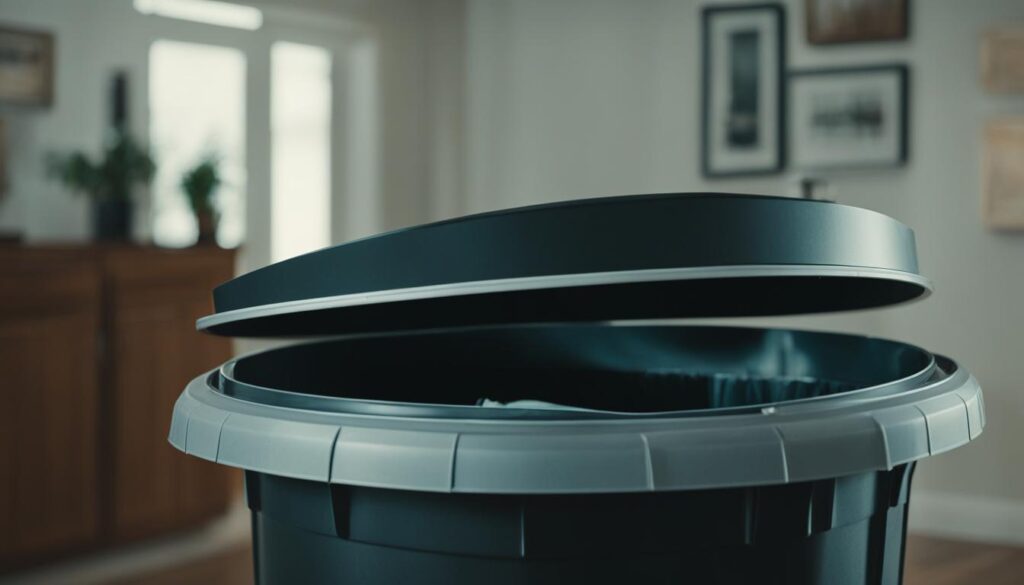
Trash discarded away from home must still be linked to you
If you discard your trash away from home, such as in a dumpster or shared receptacle, the police must establish an affirmative link between the trash and you or your residence to use it as evidence. This means they must show that the items found in the trash came from your house specifically. If they cannot prove this link, the evidence may be excluded from the case. However, if you have discarded the trash in a public area where it is readily accessible to the public, such as a dumpster or shared receptacle, you may have a diminished expectation of privacy.
In order to use trash as evidence that has been discarded away from home, the police have the burden of proof to demonstrate a connection between the trash and your residence. This can be achieved through various means, such as finding items with your name or address, identifying personal information, or establishing patterns of disposal consistent with your household.
It’s important to note that if you have discarded your trash in a public area where it is accessible to others, your privacy rights may be diminished. This is because when you discard your trash in a public space, it becomes available for anyone to access, including law enforcement. Although you may still have certain privacy rights, it is advisable to exercise caution when disposing of sensitive or confidential materials.
Example
“Trash discarded away from home can provide valuable evidence in criminal investigations. However, law enforcement authorities must be able to establish a clear link between the discarded items and the person or residence being investigated. This link is crucial in determining the admissibility of the evidence and protecting individuals’ privacy rights.”
| Trash Disposal Location | Link Established? |
|---|---|
| In a dumpster in a shared parking lot | Yes |
| On a public street | No |
| In a household bin outside of your home | Yes |
Trash on the curb is considered abandoned and can be searched
When you leave your trash on the curb for collection, it is considered abandoned property. As a result, you no longer have a reasonable expectation of privacy in its contents. This means that the police can search your trash without a warrant. Court rulings have clarified that trash placed on the curb is readily accessible to the public, including law enforcement.
This accessibility allows the police to search your trash on the curb and utilize any evidence they discover against you in a criminal case. It is crucial to understand that this applies specifically to trash left on the curb, not to trash inside your home or in other areas where you have a reasonable expectation of privacy.
Once you place your trash on the curb, it is available for anyone, including the police, to search. The abandoned nature of the trash removes any privacy rights that may exist within the confines of your home.
It’s worth reiterating that this practice is legal and has been supported by court decisions. Therefore, it’s essential to exercise caution when disposing of potentially incriminating items. Be mindful of what you discard on the curb and consider using additional methods, such as shredding sensitive documents, to safeguard your privacy.
Key points:
- Trash on the curb is considered abandoned property.
- The police can search your trash on the curb without a warrant.
- This does not apply to trash inside your home or in other areas where privacy rights exist.
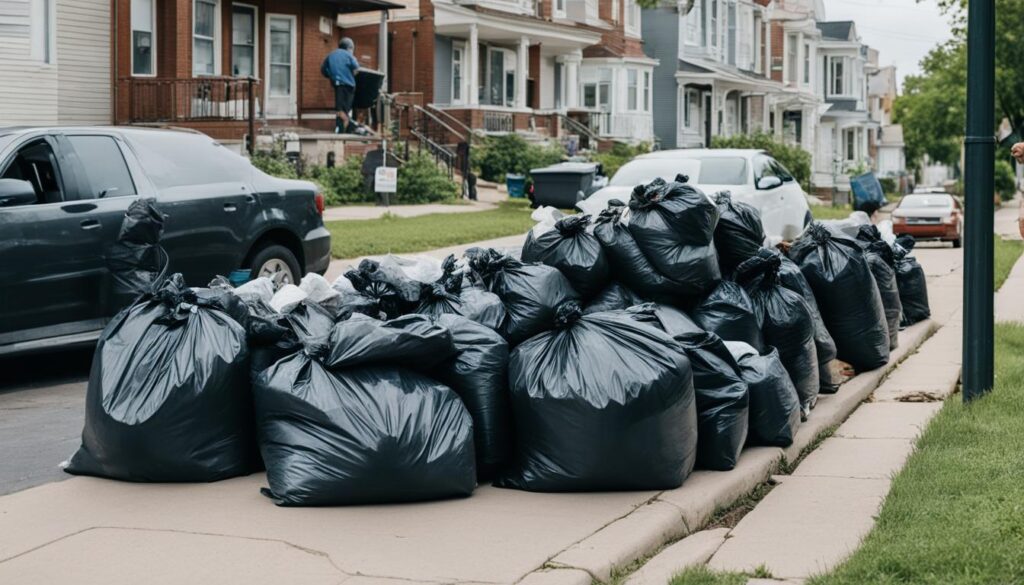
| Trash on the Curb Can Be Searched by the Police | Trash Inside Your Home Cannot Be Searched by the Police |
|---|---|
| Once you place your trash on the curb, it is considered abandoned. | Your trash inside your home is protected by privacy rights. |
| The police can search your abandoned trash without a warrant. | The police need probable cause or a warrant to search your trash inside your home. |
| The Fourth Amendment does not apply to trash on the curb. | The Fourth Amendment protects your trash inside your home. |
The Legality of Trash Searches in Wisconsin
In Wisconsin, the legality of trash searches is a topic that raises questions about privacy rights and the boundaries of law enforcement authority. When it comes to trash left by the curb for collection, the law takes an interesting stance.
Trash left on the curb is considered abandoned property and is no longer protected by the Fourth Amendment’s prohibition against unreasonable searches and seizures. This means that the police have the legal right to search your trash without a warrant. However, it’s important to note that this legality only applies to trash left on the curb, while trash inside your home or in other areas where you have a reasonable expectation of privacy is still protected.
This distinction is based on the understanding that once you place your trash by the curb, it becomes readily accessible to the public, including law enforcement. The expectation of privacy diminishes, as trash left for collection is exposed to the elements, animals, scavengers, and potential scrutiny by anyone passing by.
It’s crucial to be aware of your privacy rights and exercise caution when disposing of potentially incriminating items. While the legality of trash searches in Wisconsin may seem intrusive to some, it is essential to understand that the abandonment of trash alters its legal standing and privacy protections.
“Trash left on the curb is considered abandoned property and is no longer protected by the Fourth Amendment’s prohibition against unreasonable searches and seizures.”
This distinction sets a precedent that can impact individuals in various scenarios. For example, law enforcement could potentially search your trash and use any evidence they find against you in a criminal prosecution. This can have significant implications for your legal standing and the protection of your rights.
Wisconsin’s Unique Stand on Trash Searches
Wisconsin’s legal approach to trash searches distinguishes it from some other states in the country. In states where privacy rights are given more weight, law enforcement may need a warrant or probable cause to search your trash, even if it is left by the curb for collection.
However, in Wisconsin, the abandoned nature of trash left on the curb overrides privacy rights and the need for a warrant. This unique approach highlights the state’s emphasis on public access, rather than individual privacy, when it comes to discarded items.
The Impact on Privacy Rights
The legality of trash searches in Wisconsin raises questions about the boundaries of privacy rights and the extent of law enforcement authority. While the Fourth Amendment generally protects individuals from unreasonable searches and seizures, this protection does not extend to abandoned property.
Individuals should be mindful of the information they discard and how it may be accessed by others. Understanding the legal landscape surrounding trash searches is necessary to make informed decisions and take appropriate steps to safeguard one’s privacy rights.
Data Security and Disposal Best Practices
In an era where personal information is increasingly digitized, it’s important to remember that sensitive data can also be found in physical documents. Protecting your privacy goes beyond digital security measures; it extends to your practices around physical document disposal.
Consider implementing the following best practices to enhance your data security:
- Shred sensitive documents before discarding them.
- Be mindful of what you discard, even if it’s not directly related to criminal activities.
- Dispose of confidential information in a secure manner, such as using a personal shredder.
- Consider utilizing professional document destruction services for added security.
By taking these precautions, you can mitigate the risk of your discarded information falling into the wrong hands.
Conclusion
In conclusion, it is not illegal for someone to go through your trash in Wisconsin, as long as it is left by the curb for collection. Once you have abandoned your trash, you no longer have a reasonable expectation of privacy in its contents. The police can search your trash without a warrant and use any evidence they find against you. However, it’s important to remember that your trash inside your home or in other areas where you have a reasonable expectation of privacy is protected. Understanding your privacy rights surrounding trash disposal is essential to protecting your legal interests.
Source Links
- https://www.rothdavies.com/criminal-defense/frequently-asked-questions-about-criminal-defense/searches/can-the-police-search-your-trash-if-left-by-the-curb/
- https://www.freeadvice.com/legal/can-the-police-legally-look-through-my-garbage/
- https://www.tampacriminalattorneys.com/criminal-defense-blog/2020/february/can-police-search-your-trash-/

Subscribe to Our Newsletter

